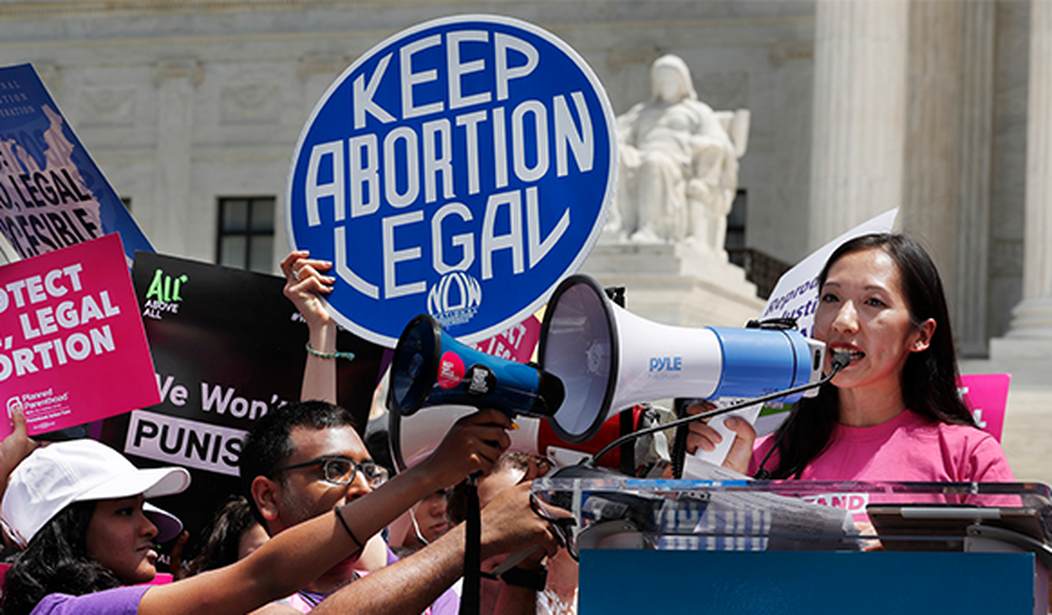Pro-abortion Los Angeles Times writer Wendy Goldman published an op-ed Tuesday called “What the U.S. can learn from Stalin’s abortion ban.” In the piece, she compared laws like Texas’ S.B. 8, which bans abortions after fetal heartbeat detection, to abortion restrictions enacted in the Soviet Union by Joseph Stalin.
“As the right to get an abortion in the United States is whittled away, state by state and statute by statute, we can learn important lessons about the impact of its repression from the history of one country where it was first legalized — and then re-criminalized,” Goldman wrote.
Goldman then explained that in 1920, Soviet Russia became the first country in the world to legalize abortion. This, and a slew of other laws enacted from 1917 to 1920, were “the most liberating legislation for women that the world had ever seen,” she wrote.
In 1936, Josef Stalin consolidated power and made abortion illegal. She wrote that, according to the new law, those who performed abortions could be sentenced up to three years in prison and women who obtained an abortion could be subject to fines. She explained that “Soviet leaders believed that once women were fully emancipated, they would no longer have any need for abortion.”
“Soviet women, however, did not share this perspective,” Goldman wrote “They recognized that poverty and unemployment played a role in women’s decisions not to bear a child, but they also supported abortion for other reasons. Statistical data from the late 1920s show that typical abortion patients were not poverty-stricken, unemployed or unmarried. Women got abortions for many reasons: They wanted to continue their education, to work outside the home and to provide better care to the children they already had. As one jurist noted, women attempted to control their fertility less because of poverty than the simple wish ‘not to have a child.’”
Recommended
Goldman then compared recent efforts in the United States to curtail abortion to when abortion was made illegal in the Soviet Union. She explained that in the Soviet Union, the new law was accompanied by expansion in child-care centers, maternity clinics, and other resources for children and mothers. She then claimed that women in Texas “have no state-mandated support to help them or the children the state is forcing them to bear.”
Following the Soviet Union's abortion ban, the birth rate in the Soviet Union increased for two years. By 1940, the birth rate had returned to the level prior to when the abortion prohibition went into effect.
“By 1939, the abortion rate was higher than it was in 1926 when the procedure was legal. The death rate from illegal, botched abortions soared as women returned to the underground practices they had been forced to use before 1920,” Goldman wrote.“Women in the United States now face the prospect of losing the right to abortion guaranteed by Roe vs. Wade. Like their Soviet counterparts after Stalin’s decree, many will resort to illegal means, risking their health and their lives to terminate a pregnancy.”
Goldman’s op-ed comes after the Supreme Court heard oral arguments Dec. 1 for the case Dobbs v. Jackson Women’s Health Organization. Dobbs surrounds a 15-abortion ban in Mississippi and could overturn landmark case Roe v. Wade. A ruling is expected next summer.
Last month, in a separate case, the Supreme Court upheld Texas’ S.B. 8 after abortion providers and the Department of Justice (DOJ) sued the state over the law, as I reported. The high court did not allow the DOJ’s lawsuit to move forward and returned the abortion providers’ case back to the Fifth Circuit Court of Appeals.
“Women all over the world understand that without the ability to control their fertility, they cannot ensure their own well-being or that of their children. They cannot participate fully in the public sphere or claim an equal place with men. As governments continue to repeat the mistakes of the past when it comes to outlawing abortions, women will continue to suffer simply by pursuing their need — and what should be their right — to bodily autonomy,” Goldman concluded.

























Join the conversation as a VIP Member